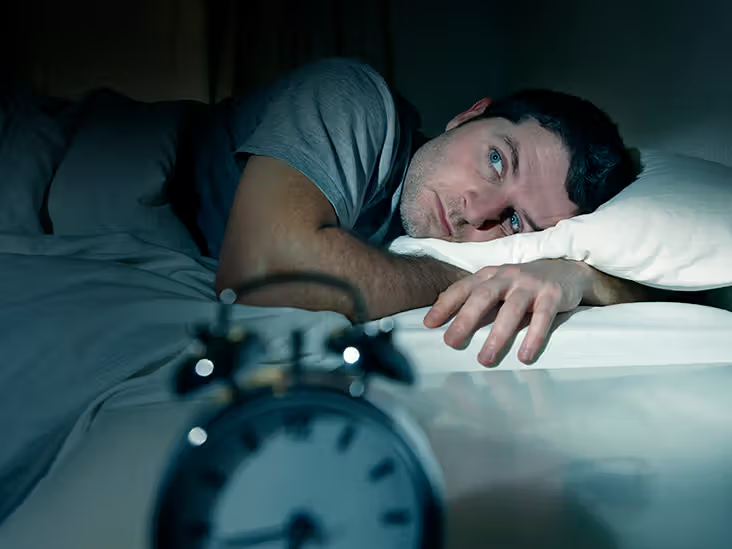Insomnia and anxiety are two interconnected conditions that affect millions of individuals worldwide. This article explores their relationship, how they can perpetuate each other, and offers strategies for breaking the cycle to achieve better sleep and mental well-being.
Understanding Insomnia
Insomnia is characterized by difficulty falling asleep, staying asleep, or waking up too early and not being able to return to sleep. It can be acute, lasting a few days to weeks, or chronic, persisting for months or even years. The consequences of insomnia are far-reaching, leading to daytime fatigue, impaired cognitive function, irritability, and a reduced quality of life.
Causes of Insomnia
While insomnia can arise from various factors, including lifestyle choices and environmental influences, psychological conditions like anxiety are significant contributors. Stressful life events, medical conditions, and even certain medications can also disrupt sleep patterns.
The Nature of Anxiety
Anxiety is a normal response to stress but can become excessive and debilitating when it interferes with daily functioning. It manifests in various forms, such as generalized anxiety disorder (GAD), panic disorder, social anxiety, and specific phobias. Common symptoms include persistent worry, restlessness, rapid heart rate, and, importantly, sleep disturbances.
How Anxiety Affects Sleep
Anxiety often leads to hyperarousal, a state where the mind is overly alert and vigilant. This heightened state of awareness can make it challenging to relax and fall asleep. Additionally, racing thoughts and an overwhelming sense of worry can keep individuals awake at night, leading to a vicious cycle where insomnia exacerbates anxiety and vice versa.
The Cycle of Insomnia and Anxiety
The interplay between insomnia and anxiety creates a self-perpetuating cycle:
Anxiety Leads to Insomnia: Individuals experiencing anxiety often find it difficult to unwind at night. This inability to relax can result in difficulty falling asleep or frequent awakenings throughout the night.
Insomnia Increases Anxiety: The lack of restorative sleep can heighten feelings of anxiety. Sleep deprivation impacts mood regulation and cognitive function, leading to increased irritability and worry.
Reinforcement of Symptoms: As anxiety levels rise due to insomnia, the anticipation of another sleepless night can further increase anxiety, creating a loop that can feel impossible to break.
Breaking the Cycle
Breaking the cycle of insomnia and anxiety requires a multi-faceted approach. Here are some effective strategies:
1. Establish a Sleep Routine
Consistency is key when it comes to sleep. Going to bed and waking up at the same time every day helps regulate the body’s internal clock. A calming bedtime routine, such as reading or practicing relaxation techniques, signals to the brain that it’s time to wind down.
2. Create a Sleep-Friendly Environment
A conducive sleep environment is essential for good quality sleep. Make sure your bedroom is dark, quiet, and cool. Invest in comfortable bedding and limit exposure to screens in the hour leading up to bedtime, as blue light can interfere with melatonin production.
3. Mindfulness and Relaxation Techniques
Mindfulness practices such as meditation, deep breathing, and progressive muscle relaxation can significantly reduce anxiety and promote better sleep. By focusing on the present moment and letting go of racing thoughts, individuals can achieve a state of calm that facilitates sleep.
4. Limit Stimulants
Caffeine and nicotine are stimulants that can disrupt sleep. Limiting their intake, especially in the afternoon and evening, can help improve sleep quality. Alcohol, while it may initially induce drowsiness, can lead to fragmented sleep and should also be consumed in moderation.
5. Exercise Regularly
Regular physical activity is beneficial for both anxiety and sleep. Exercise releases endorphins, which can improve mood and reduce stress. However, it’s best to avoid vigorous workouts close to bedtime, as they can be stimulating.
6. Seek Professional Help
If insomnia and anxiety persist, it may be beneficial to consult a mental health professional. Cognitive-behavioral therapy (CBT) has proven effective in treating both conditions. CBT for insomnia (CBT-I) focuses on changing sleep behaviors and thoughts that contribute to sleep problems. Additionally, therapy for anxiety can provide coping strategies and tools to manage overwhelming feelings.
7. Medication Options
In some cases, medication may be appropriate. Antidepressants and anxiolytics can help manage anxiety symptoms, while sedatives may be prescribed for short-term insomnia relief. However, medication should be considered a part of a broader treatment plan and used under the guidance of a healthcare provider.
Lifestyle Modifications
Beyond the immediate strategies, making broader lifestyle changes can have a lasting impact on managing both insomnia and anxiety:
Healthy Diet: A balanced diet rich in whole foods, fruits, vegetables, and lean proteins supports overall well-being and can positively influence sleep.
Limit Naps: While short naps can be restorative, excessive daytime napping can interfere with nighttime sleep patterns.
Journaling: Writing down thoughts and worries before bed can help clear the mind, reducing anxiety and promoting better sleep.
Conclusion
The relationship between insomnia and anxiety is complex, but understanding this cycle is the first step toward breaking it. By implementing practical strategies and making lifestyle adjustments, individuals can improve their sleep quality and reduce anxiety. It’s important to remember that recovery takes time, and seeking support from professionals can make a significant difference. Breaking the cycle is not just about finding solutions; it’s about nurturing a holistic approach to mental and physical health, leading to a more restful night and a brighter day.
